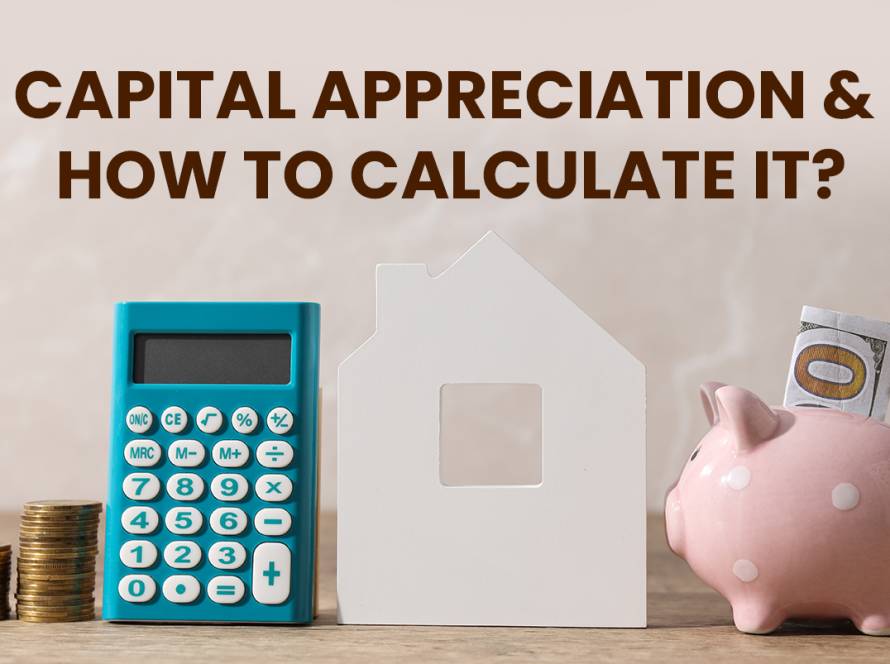Table of Contents
Who is an NRI?
An NRI, or Non-Resident Indian, is someone who holds Indian citizenship but resides outside the country for employment, business, education, or other purposes. Understanding your NRI status is important because it determines what types of properties you’re legally allowed to purchase in India, how you can finance them, and what tax rules will apply to you. Whether you’ve lived abroad for years or just moved recently, your residential status plays a big role in your property journey.
Overview of FEMA
The Foreign Exchange Management Act (FEMA) is a regulatory framework that governs all foreign currency transactions in India, including those involving real estate. If you’re buying property as an NRI, FEMA lays out exactly what you can buy, how you can pay for it, and what channels you must use. It’s not as complicated as it sounds think of it as a safety net that ensures your transaction is completely legal and smooth from start to finish.
FEMA Guidelines for NRI Buying Property
Under FEMA, NRIs are free to buy residential and commercial properties in India, but they’re restricted from purchasing agricultural land, farmhouses, or plantation properties. All payments must be made through formal banking channels, typically via NRE/NRO/FCNR accounts. These rules ensure transparency and make the process safer for you as an overseas investor.
Eligibility Criteria
To invest in Indian property as an NRI, you’ll need a valid Indian passport, proof of residence abroad (like a visa or work permit), and a PAN card. These documents prove your identity and allow you to make high-value transactions. Some banks and developers may also ask for recent overseas address proof, especially if you’re applying for a loan or registering the property.
Types of Properties
As an NRI, you’re allowed to purchase residential properties like apartments, independent houses, or villas as well as commercial properties such as offices and shops. However, you cannot buy agricultural land or farmhouses unless you inherit them or receive them as a gift from someone legally allowed to own such land. Understanding these categories early will save you from unexpected legal issues later.
Purchase
Buying property in India as an NRI involves identifying a suitable property, verifying legal documents, arranging funds through permitted channels, and registering the property under your name. You can also assign a Power of Attorney (PoA) to someone in India to complete the purchase on your behalf if you’re not physically present.
Inheritance
NRIs are allowed to inherit both residential and agricultural property from relatives in India. There are no restrictions under FEMA for inheritance, but proper documentation such as a will, succession certificate, or legal heir certificate is necessary to transfer ownership. This is a common way for NRIs to acquire ancestral homes or land.
Gift
You can legally receive property in India as a gift from a relative such as your parents or siblings as long as the transfer is registered and documented. Gifting is tax-exempt when done between specified relatives, and this method is often used for family-owned properties.
Payment Regulations
All payments for property purchases must go through official banking channels. This means using your NRE (Non-Resident External), NRO (Non-Resident Ordinary), or FCNR (Foreign Currency Non-Resident) account. Cash transactions are strictly prohibited. This not only keeps your investment safe and legal but also helps when you want to repatriate funds later.
Rules for PIOs Buying Property in India
Persons of Indian Origin (PIOs) are treated similarly to NRIs when it comes to buying property. If you hold a foreign passport but are of Indian descent, you can still invest in Indian real estate, provided you have a valid OCI (Overseas Citizen of India) or PIO card. The process, payment rules, and property restrictions are nearly identical to those for NRIs.
Property Acquisition Rules for NRIs from Specific Countries
If you’re an NRI from countries like USA, UK, Doha, Dubai, or Singapore, there might be additional permissions required before purchasing property in India. This is mostly due to geopolitical factors or bilateral agreements. It’s best to consult a qualified legal advisor or a trusted real estate consultant before proceeding, just to ensure you’re fully compliant and won’t face any roadblocks later.
Why NRIs Are Choosing to Buy Property in India
Buying property in India as an NRI comes with a lot of benefits. For starters, the exchange rate often works in your favor, meaning your foreign income stretches further here. Then there’s the rising property value in cities like Chennai, Coimbatore, and Madurai making it a solid investment. Beyond the numbers, owning a home in India brings peace of mind, whether you plan to return one day or want a place to stay during visits. Plus, many top developers now offer special NRI support from virtual site visits to legal assistance making the entire process much easier.
Key Things to Know Before You Buy
Before making a commitment, take the time to do thorough research. Double-check the legal status of the property, get to know the developer’s history, and make sure you understand the full cost including taxes, registration charges, and stamp duties. Also, think ahead: are you buying to live here later, rent it out, or resell? Knowing your goal helps you choose wisely.
Legal Verification
Don’t skip this step. Ensure the property has a clear title, is legally approved, and isn’t caught up in any disputes. It’s highly recommended to work with a property lawyer or a reliable real estate partner like VNCT Global, especially if you’re abroad and can’t be present physically. They’ll make sure everything is in order so you can invest with confidence.
How to Choose the Right Location
Where you buy is just as important as what you buy. If you’re looking for rental income or high appreciation, cities like Chennai and Coimbatore are great options due to their growing demand and infrastructure. On the other hand, if you want a peaceful, value-for-money option for your future retirement or visits, Madurai might be ideal. Always look for areas with good connectivity, access to hospitals, schools, and transportation. A smart location now can make a big difference in the future.
Funding and Finance
Will you use your savings or take a loan? NRIs are eligible for home loans from Indian banks, but the paperwork and eligibility criteria differ slightly. Compare interest rates, tenure options, and documentation required. Also consider currency exchange rates and tax implications on repatriation later.
Developer Credibility
Stick with known and best villa developers in India who have delivered quality projects on time. Check RERA registration, visit past projects (virtually or through family/friends), and read buyer reviews. Working with established names like VNCT Global gives you peace of mind.
Tax Implications
Understand the taxes involved: TDS (Tax Deducted at Source) applies on capital gains, rental income is taxable, and you may be able to claim relief under the Double Taxation Avoidance Agreement (DTAA). It’s best to consult a tax advisor familiar with NRI taxation rules.
Documentation Required for Buying Property in India for NRIs
You’ll need the following:
- Valid passport and visa
- PAN card
- OCI/PIO card (if applicable)
- Proof of overseas and Indian address
- NRE/NRO bank account statements
- Power of Attorney (if someone in India is acting on your behalf)
Tax Implications for Non-resident Indians Buying Property in India
Here’s the breakdown:
- Rental Income: Taxed at slab rates after 30% standard deduction.
- Capital Gains: 20% TDS for long-term, 30% for short-term.
- Double Taxation: If your home country taxes income from India, DTAA helps avoid paying tax twice.
TDS Rates
- 20% for properties held over 2 years (long-term capital gains)
- 30% for properties sold within 2 years (short-term)
Plus surcharge and cess. A CA’s certificate is required if you want a lower deduction or refund claim.
Funding Options for NRI Property Purchase
You can finance your property through:
- Home loan from an Indian bank (in INR)
- Personal savings from NRE/NRO accounts
- Funds from your FCNR account
Choose based on interest rates, currency strength, and your long-term plans.
Repatriation of Funds for NRIs
Thinking of selling your property in the future? As an NRI, you’re allowed to repatriate up to USD 1 million per financial year from the sale proceeds. However, this is only possible if you’ve held the property for a minimum of 3 years and have the necessary documents certified by a Chartered Accountant. Make sure to keep your paperwork in order to avoid delays in the process.
12-Step Guide for NRI Buying Property in India
Step 1: Understand Your Purpose
Are you buying for investment, retirement, vacation, or as a gift for family? This clarity helps narrow down location, type, and budget. For instance, if it’s retirement, consider serene villa townships like Palm Beach or Brookside Residences by VNCT Global.
Step 2: Know the Property Types You Can Buy
As an NRI, you can legally purchase residential and commercial properties but not agricultural or plantation land. Stick to villas, apartments, or commercial units with clear documentation.
Step 3: Check FEMA Regulations
The Foreign Exchange Management Act (FEMA) governs how NRIs invest in Indian real estate. Understanding its guidelines ensures you don’t hit legal roadblocks down the line.
Step 4: Get a PAN Card
This is your tax identity in India. It’s essential for buying property, paying taxes, and registering your new asset. If you don’t already have one, apply online from abroad.
Step 5: Secure Home Loan Pre-Approval
Many Indian banks offer home loans tailored for NRIs. Pre-approval gives you a realistic budget and makes developers take you more seriously.
Step 6: Open NRE/NRO Accounts
You’ll need these for all your financial transactions related to the purchase. NRE (Non-Resident External) accounts are good for repatriation, while NRO (Non-Resident Ordinary) accounts are best for local expenses.
Step 7: Finalize Location and Builder
Choose cities that offer long-term value, infrastructure, and safety. Only deal with RERA-approved developers like VNCT Global, who have a legacy of delivering high-quality villas in Chennai, Coimbatore, and Madurai.
Step 8: Conduct Virtual Tours and Legal Due Diligence
If you can’t travel to India, request a detailed video walkthrough and all property documents. Have a trusted lawyer verify titles, approvals, and encumbrances.
Step 9: Draft a Power of Attorney (PoA)
Since you’re abroad, appoint a trusted family member or legal rep in India through a registered PoA to sign documents or take possession on your behalf.
Step 10: Sign the Builder-Buyer Agreement
Ensure everything floor plans, materials used, deadlines, penalties is clearly outlined. Developers like VNCT are known for maintaining transparency and sticking to delivery promises.
Step 11: Register the Property
Pay the applicable stamp duty and registration charges in your state. This finalizes ownership. States like Tamil Nadu have simplified online registration portals for smoother processes.
Step 12: Plan for Repatriation (If Selling in the Future)
If you plan to sell and move the funds back abroad, keep all documents safe. Work with a CA to comply with RBI and income tax rules.
Best Cities in India for NRIs to Buy Property
1. Chennai
With tech parks, global schools, and beachside luxury, Chennai offers solid returns. Areas like Kelambakkam, ECR, and OMR are hot spots for NRI villa buyers. VNCT Global’s Palm Beach and Ocean Drive Villas are perfect for lifestyle and investment.
2. Coimbatore
Nicknamed the “Manchester of South India,” Coimbatore is clean, peaceful, and perfect for retirement or long-term rental income. It also has excellent healthcare and schools.
3. Madurai
Rich in heritage yet booming with real estate potential. It’s ideal for cultural connection and low-risk investment. Villas here are affordable yet promising, making it a growing NRI magnet.
Conclusion
Buying property in India as an NRI isn’t just a financial move it’s a personal one. It’s about staying connected to your roots, investing in your future, and building something lasting for your family. Whether you’re eyeing a luxury villa in Chennai, a peaceful home in Madurai, or a modern retreat in Coimbatore, the key is to go in informed and supported.
From understanding FEMA rules to choosing the right developer, there’s a lot to take in—but you don’t have to navigate it alone. VNCT Global offers tailored support for NRIs, including project walkthroughs, legal assistance, and seamless documentation. Their premium developments like Brookside Residences, Palm Beach, Park Villas, Creek Residences, and Ocean Drive Villas are designed to meet both emotional and financial goals.
So if you’re ready to take that first step toward owning a piece of home, we’re here for you.
Have questions? Need help deciding?
Contact us VNCT Global we’ll guide you every step of the way.
FAQs For NRI Buying Property in India
- Can NRIs buy agricultural land in India?
No, NRIs are not allowed to purchase agricultural land, plantation property, or farmhouses in India. However, if you inherit such land from family, it’s permitted under certain conditions. - Is it necessary to have a PAN card to buy property in India?
Yes, having a PAN card is mandatory. It’s needed for property registration, tax filings, and even for processing home loans. If you don’t have one yet, it’s best to apply before starting the property process. - Can I take a home loan from an Indian bank as an NRI?
Absolutely. Most Indian banks offer home loans to NRIs with competitive interest rates. Just make sure your documentation is complete like income proof, overseas residence verification, and valid NRE/NRO account statements. - How can I manage the property if I’m not in India?
You can appoint a trusted family member or legal representative through a registered Power of Attorney (PoA). Many NRIs also work with reputed developers like VNCT Global, who offer complete end-to-end support, from purchase to possession. - Can I send the money from the property sale back to my country?
Yes, repatriation is allowed up to USD 1 million per financial year, provided you meet certain conditions like holding the property for a minimum of 3 years and submitting a CA-certified tax clearance. - What should I look for in a developer before buying?
Look for RERA registration, timely project delivery, legal transparency, and past customer feedback. Partnering with best villa developers in India like VNCT Global ensures you’re investing with confidence.





